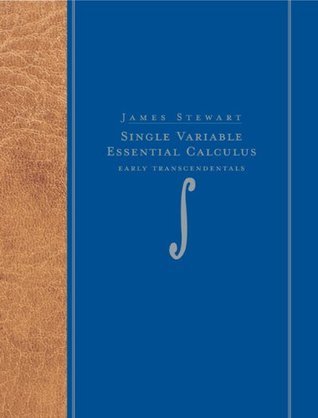Stewart’s logical motion from question to proof illuminates the central concepts of single variable calculus for a student who has had trouble grasping the motivation behind such proofs in the past. Especially appreciated, even central to my enjoyment, were his extensive and passionate inclusions of concepts, bridging Greek philosophy, physics, and many other applications both abstract and real. There is a certain poetry to this breakdown of the world through numbers, but I wonder if that’s just me fetishizing the language.

